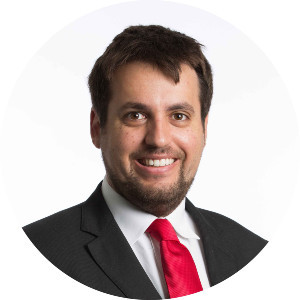Hey, this is a bit different kind of question than usually posted on this forum. Can you (especially from experts) guys give me some advice on how to react after making a mistake (say using the wrong approach, or making a math error while estimating market size) during an interview? I find I get super nervous whenever I say something stupid. I feel conscious and it further spoils my interview. How can I overcome this?
Recovering from mistakes in interviews

Maybe it helps you to know that mistakes happen a lot. Candidates are nervous, the stakes are high -- interviewers know this. In a way, a mistake is even an opportunity to show the interviewer how you deal with it. Do you recognize it yourself? Do you get defensive? Do you deny it? Or do you deal with it professionally?
The best candidates correct themselves. For example, after saying a mistake out loud, they stop and think about it (= sanity check), and say "wait, sorry, that cannot be true" and correct the mistake. One level below, saying "the result doesn't make sense" when not knowing the root cause of the error is better than nothing. It at least shows that you still know what you're working on and/or your business judgement if you're putting the result in context.
What about the "worst case", when you made an error and didn't notice it and the interviewer points it out to you? Just be cool about it, quickly double check that he or she is right and that you really made the mistake, and admit it briefly but clearly. Correct the numbers and go on -- don't over-apologize (of course you didn't do it on purpose, no need to waste time apologizing), but also don't deny it or ignore it or try to cover it up. A quick "Oh, yes, you're right, my mistake. The correct number is ..." will do. [Here's a secret: Often, interviewers tend to only point mistakes out if they like you and want you to succeed. If it wasn't great until that point, why bother :)]
In the end, the interviews test for so much -- intellectual rigor, energy level and posture, personality, working under stress, acting on feedback, etc. Making a small mistake in a math equation really is no big deal, esp. if you figure it out yourself.
Lastly, the "allowed margin of error" differs. If you argue that 3B people live in the U.S., you have a problem. If your estimate of supermarkets in France is off by a factor of 10, you may still be fine if your approach was good. Small mistake when summing numbers up, no biggie. 3 errors in 3 different calculations is an issue.
It's simple: Consultancies want to hire people they can send to clients and charge money for. If a candidate constantly makes mistakes or makes outrageous (=stupid) claims, he is a risk to the firm as clients will not be happy.
But judging from the question it seems you're a bit too hard on yourself :)
All the best for the interviews!

This is a point that I frequently emphasize when coaching candidates: if you find out that your structure from the beginning has been missing an important element, it is not only ok, but ESSENTIAL to refer back to your structure and integrate the newly discovered aspect into it! Here it is best practice to actively moderate the process, i.e.,
"This is a very interesting finding, and I believe it critically impacts my basic structure. So if you allow me, I will take a moment to refine my approach and then walk you through how the new element relates to the rest of the structure.".
Because guess what - this is what happens basically every week during real consulting work! You constantly iterate and refine, so doing this in a clear and logical way during the case interview shows a very important skill.
Regarding the recommendation phase, I would not ask the questions on time at this stage. I would rather frame my recommendation as contingent on the time horizon. E.g.,
"If you are looking at a short to mid-term time frame (<18 months), the recommendation is [abc]. For a longer time horizon though, I would rather recommend [xyz]."

Hey,
just one addition on being nervous: This is totally normal, and interviewers expect you to be a bit nervous, especially for juniors.
But if you feel your nervousness taking a hold of you and stopping you from thinking straight you need to be able to break that cycle. That is a challenge, because fear is one of our most primal instincts and deeply hardwired into our organisms. When nervousness and fear of rejection start galopping, they quickly take over your entire system. So beware!
So what to do? Stop, take a deep breath, sit up straight, drink a sip of water. Tell yourself that you will be ok, no matter what. If you must, drop your pen to the floor (as if by accident) and pick it up, just to physically break that cycle. Sounds stupid, but it works.
For some great advice on how to overcome anxiety, fear and nervousness, there's some great stuff on youtube: https://www.youtube.com/watch?v=mxl2l-QBD0s https://www.youtube.com/watch?v=qjhf0lBHFHY
And many more...
Hope that helps,
Elias

Hi,
First of all - it is absolutely ok to take a minute and structure your thought. In fact, you never stop using the structures. Thus you can always reshuffle your structures, build the new structures, etc. It's a constant process.
The most common feedback on the interviews is "You are not structured enough". To avoid this you should always be structuring. Make an initial structure and then dig deeper using the new structures. These structures can be both fully MESE issue trees or frameworks or a combination of both.
For example, if you find that we spend more time on cleaning the job shop than the other division you go with the following:
- Frequency of cleaning * Time spent per one cleaning
- If we find that the frequency is the same, we structure it further into: People, Process, Technology
Secondly, it is really hard to make a good framework if you don't know the objective. It's something that you should never forget doing! Have the rule to do the following at the beginning of the case:
1) Clarify the business model. Even if you think you understand it, try to repeat it to make sure that you understand it correctly.
2) Clarify the objective. Here make sure that your goal is:
- Measurable
- Has a time-framed
- Has / has no limitations
e.g. Should I invest 100k in this business for 1 year if I want to get 15% return?
3) Ask the questions that will help you build a relevant structure and remove ambiguity.
e.g. if the case is about oil&gas company which revenues are declining, ask if it is Up / mid / down-stream problem. In this case, defining a revenue stream is critical to setting up the right structure.
Best,
Vlad
Hey Ghali,
I believe Sidi's point already cover the basics of what to do if you discover a "small mistake" or a "small lack" in your framework. Let me just add on what to do if you discover that you're initial framework was completely unreasonable.
First of all, that might happen in the early begin of the case. If your interviewer sees such a framework he might challenge you immediately to check if you can come up with something else more robust and appropriate. In such case, my advice is for you to take it as a second chance to impress, do your best and above all don't be defensive (i.e., arguing that your initial framework was amazing).
Second, the interviewer might allow you to proceed to see where you end up, but mid-case you realize that's not being helpful. In those case, you should still be brave and recognize that there might be a better way to approach the problem - lay the new framework down.
In both cases, do your best to impress in your second try!
About questions in the recommendation: definitely not. Not a time for further questions or analysis, if something include them in the next steps.
Best
Bruno

Hi Ghali,
as for your first question, as Sidi and Bruno mentioned, it is totally ok to ask for 30 seconds and restructure your approach. As Sidi said, you will actually gain points in this way.
As for your second question on the recommendation, I personally don’t agree with the previous answers. Although you would not gain all the points clarifying the objective later, it is far better to ask before the recommendation than don’t ask at all. If you keep the recommendation hypothetical, you simply show you don’t know you should clarify the objective. You are not going to hide the mistake to the interviewer not asking, has he/she noticed that from the beginning.
Thus I would suggest proceeding with something as follows:
“Before I move to the sum up, I would like to clarify the specific target of our client. We found so far XYZ in savings. Do we have any information on the specific target in absolute amount of the client?”
This won’t give you back all the points you lost not clarifying before, but will let you to recoup some of them.
Best,
Francesco

Dear A,
1. It's ok to ask for 30 sek to structure your thoughts
2. It's ok to ask for a feedback
3. It's ok to make mistakes.
But I would recommend you to make more mistakes while you are preparing, and a coach, who could feedback on them and help you to line yourself in a right direction.
If you need any help, feel free to reach out.
Best,
André

















